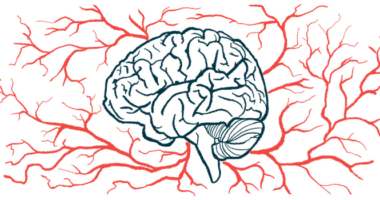NHLBI Challenges Students to Create Innovative Tools to Raise Awareness

A new National Heart, Lung, and Blood Institute (NHLBI) challenge will award a first prize of $25,000 to a team of college or graduate students who develop an innovative tool to help spread evidence-based information about sickle cell disease (SCD).
A total of $50,000 will be granted to the three winning teams of the NHLBI Hope for Sickle Cell Disease Challenge.
Student teams have until Feb. 26 to register for the challenge, and proposals must be submitted by March 26. Both processes are completed by emailing [email protected]; more information can be found here.
SCD is the most common genetic disorder in the U.S., estimated to affect 100,000 Americans, or one out of every 365 Black or African-American births. Still, many people are unfamiliar with the disease and its effects.
“A lack of awareness about SCD and its associated complications among the public and affected communities, can contribute to stigmas associated with SCD, a lack of understanding of how the disease affects individuals and families, and to less than optimal care experienced by many patients,” the NHLBI stated in the challenge’s announcement document.
Through this challenge, the NHLBI — one of the largest centers that make up the National Institutes of Health — seeks to increase awareness about SCD and address its associated myths and stigmas. These goals are in line with the institute’s mission of supporting research, training, and health information dissemination on blood diseases, along with those of the heart, blood vessels, and lungs.
The challenge is open to teams composed of three to five college or graduate students, all age 18 or older and citizens or permanent residents of the U.S. Teams are encouraged to be multidisciplinary, including students from diverse fields of experience, and they must have a faculty member with mentoring experience as a mentor.
Each team is asked to develop and submit a creative and innovative information dissemination tool, instrument, or device to help build awareness of evidence-based information about SCD. The goal is to help people with the disease “to live better, healthier lives,” according to the announcement.
The NHLBI said having new tools or devices that better disseminate information about SCD may help improve patients’ outcomes. The hope is to increase public awareness of the blood disorder and to provide patients, caregivers, and the families of those affected by SCD with accurate and easy-to-understand information about the disease and its complications.
The institute also hopes to educate healthcare providers about pain and opioid management.
Eligible tools include videos, software applications, games, websites, books, songs, exhibits, or marketing, social media, or grassroots campaigns; all original materials must be written or composed in English.
The tools must undergo pilot testing before submission and will then be evaluated by appointed judges based on their significance, innovation, design, affordability, usability, approach, pilot testing outcomes, and feasibility. The winning teams will then be invited to present their projects at a selected meeting.
The NHLBI also hopes that the challenge encourages “team science” by providing students valuable experiences to collectively pursue science and resolve complex problems to improve outcomes.






